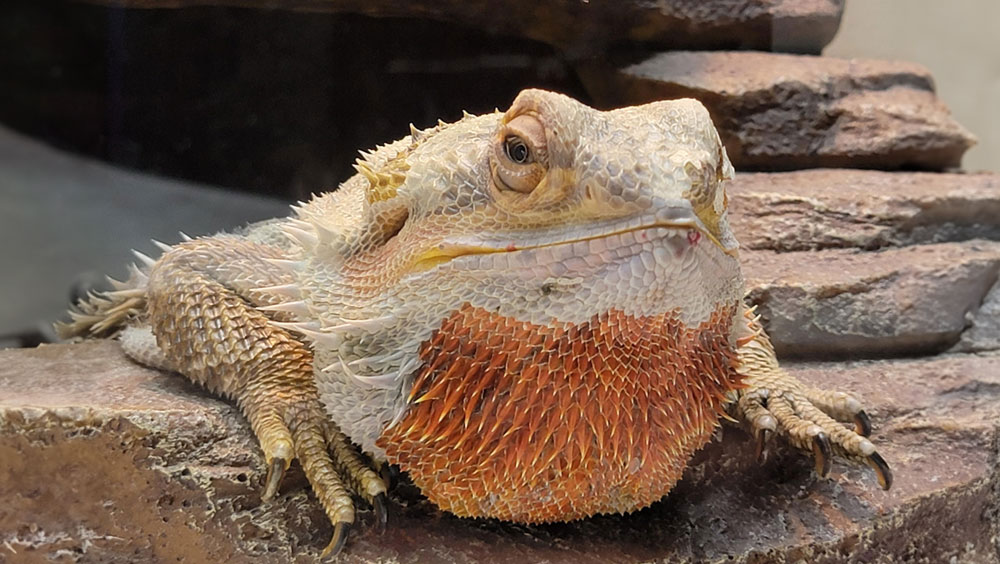Bearded dragons are highly-demanded pets for people who want an exotic pet that is relatively easy to care for. They require a specific diet and certain environmental conditions. This includes offering them a variety of foods that make up a balanced diet. It’s important to learn which foods are safe for your bearded dragon to eat and which should be avoided, as some can cause illness or even be poisonous.
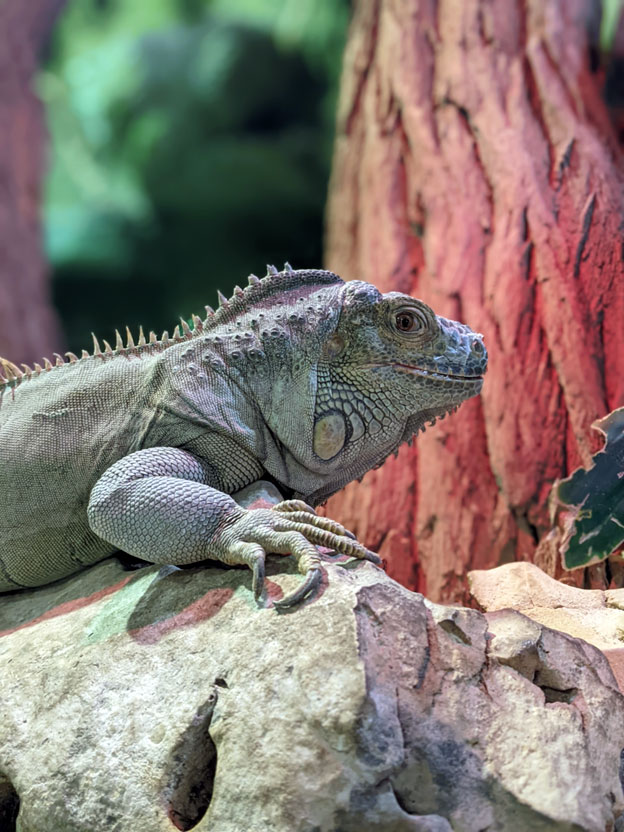
Owners must research how to properly take care of their bearded dragon in order to ensure its health and well-being. One important component of a bearded dragon's diet is vegetables, such as leafy greens and other fruits and vegetables. This leads many owners to wonder: can bearded dragons eat tomatoes?
Bearded Dragon Diet Basics
The best diet for a bearded dragon depends on the environment and the age of the dragon. As far as the environment is concerned, if the dragon is kept outdoors, it should be fed a diet that consists primarily of live insects such as crickets, mealworms, and waxworms. If the dragon is kept indoors, it should be fed a diet consisting mainly of vegetables and greens.
Wild Vs Pet Dragons
Bearded dragons have a diverse diet consisting of both insects and leafy greens. In the wild, they primarily feed on insects such as crickets, mealworms, and grasshoppers. They also consume a variety of vegetation like flowers, fruits, and leafy greens.
In captivity, it is essential for bearded dragon owners to replicate this balanced diet. Leafy greens are a crucial component of their diet, providing essential nutrients and hydration. Collard greens, mustard greens, and dandelion greens are excellent options.
Can Bearded Dragons Eat Tomatoes?
Yes, bearded dragons can eat tomatoes. Tomatoes are safe for bearded dragons to consume, but they should only be given as an occasional treat.
However, it's important to note that tomatoes should be fed in moderation due to their high oxalic acid content. Oxalic acid can interfere with calcium absorption and potentially lead to calcium deficiency in bearded dragons.
To ensure a balanced diet for your bearded dragon, it's crucial to offer a variety of foods, including leafy greens, to meet their nutritional needs. Additionally, bearded dragons require a calcium-to-phosphorus ratio to prevent deficiencies and related health issues. It is recommended to consult with a veterinarian or reptile specialist to determine the appropriate feeding schedule and ensure a healthy diet for your bearded dragon.
Nutritional Benefits and Risks of Feeding Tomatoes
Tomatoes offer some nutritional benefits for bearded dragons. They contain essential vitamins and minerals that can contribute to their overall health. Tomatoes are an excellent source of vitamin A, which is necessary for proper eye health, immune function, and growth. Vitamin A also plays a vital role in skin and respiratory health.
In addition to vitamin A, tomatoes also contain vitamin C. This vitamin helps support the immune system and aids in the absorption of iron. It also acts as an antioxidant, protecting the body against free radical damage.
Moderation and Precautions
Tomatoes can be included as an occasional treat in a bearded dragon's diet. They provide essential nutrients such as vitamin A and vitamin C, which are beneficial for their overall health. However, bearded dragon owners should be aware of the potential risks associated with feeding tomatoes to their pets.
Tomatoes contain a relatively high amount of oxalic acid, which can interfere with calcium absorption in the bearded dragon's body. Calcium deficiency can lead to serious health issues like metabolic bone disease. To minimize this risk, it is recommended to offer tomatoes as a small part of a balanced and varied diet.
If you decide to feed tomatoes to your bearded dragon, it's important to prepare them properly. Remove the seeds and the skin, as they can be hard to digest and may cause digestive issues. Additionally, make sure the tomatoes are ripe and fresh before offering them to your pet.
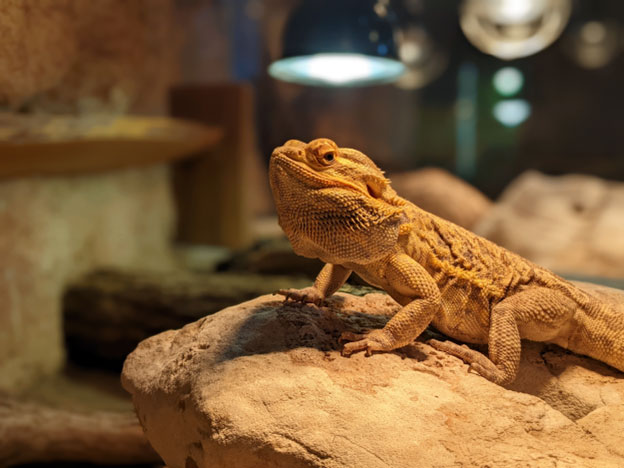
Remember, moderation is key when it comes to feeding tomatoes to your bearded dragon. By offering them as an occasional treat and taking the necessary precautions, you can help ensure the health and well-being of your reptilian friend.
What Is Metabolic Bone Disease?
Metabolic bone disease is a common health issue in bearded dragons. It is caused by calcium deficiency, which can be the result of dietary deficiencies or an imbalance in the calcium-to-phosphorus ratio. Symptoms of metabolic bone disease include softening and deformation of bones, weakness, listlessness, difficulty moving, twitching, and seizures. If left untreated, metabolic bone disease can be fatal.
Bearded dragons should be offered a variety of foods to ensure they get sufficient amounts of calcium and other essential nutrients. It is recommended to consult with a veterinarian or reptile specialist to determine the best feeding schedule for your pet and include calcium supplements if necessary. Additionally, it is important to regularly monitor your bearded dragon's health and contact a vet if any signs of metabolic bone disease are observed.
Which Type Of Tomatoes Are Best For This Pet?
The best variety of tomatoes for bearded dragons is grape or cherry tomato, as these are smaller and have fewer seeds. These small tomatoes also contain less acidity than other varieties, which can be beneficial for bearded dragon digestion. It is important to avoid larger varieties such as Roma or beefsteak tomatoes, as they can be difficult for your pet to digest.
Other Suitable Foods for Bearded Dragons
Bearded dragons require a balanced and nutritious diet to thrive. In addition to insects and leafy greens, there are several other safe and nutritious food options that can be included in their diet.
Fruits: Apart from tomatoes, bearded dragons can enjoy a variety of fruits as occasional treats. Some suitable options include strawberries, blueberries, raspberries, and watermelon. Remember to remove any seeds or pits before offering them to your pet.
Vegetables: Bearded dragons can benefit from a wide range of vegetables. These include but are not limited to kale, collard greens, dandelion greens, mustard greens, and turnip greens. These leafy greens provide essential vitamins and minerals.
Other Vegetables: Alongside leafy greens, bearded dragons can also consume vegetables such as bell peppers, carrots, squash, and sweet potatoes. These provide additional nutrients and variety to their diet.
Insects: Insects are an important part of a bearded dragon's diet. Suitable options include crickets, mealworms, dubia roaches, and silkworms. These insects are rich in protein and essential nutrients.
Commercial Diets: There are also specially formulated commercial diets available for bearded dragons. These diets are designed to provide a balanced mix of nutrients and can be a convenient option for some owners.
It is essential to offer a varied diet to ensure bearded dragons receive all the necessary nutrients. Rotating different food options helps prevent boredom and provides a range of flavors and textures. Remember to consult with a reptile veterinarian to ensure you are providing the best diet for your bearded dragon's specific needs.
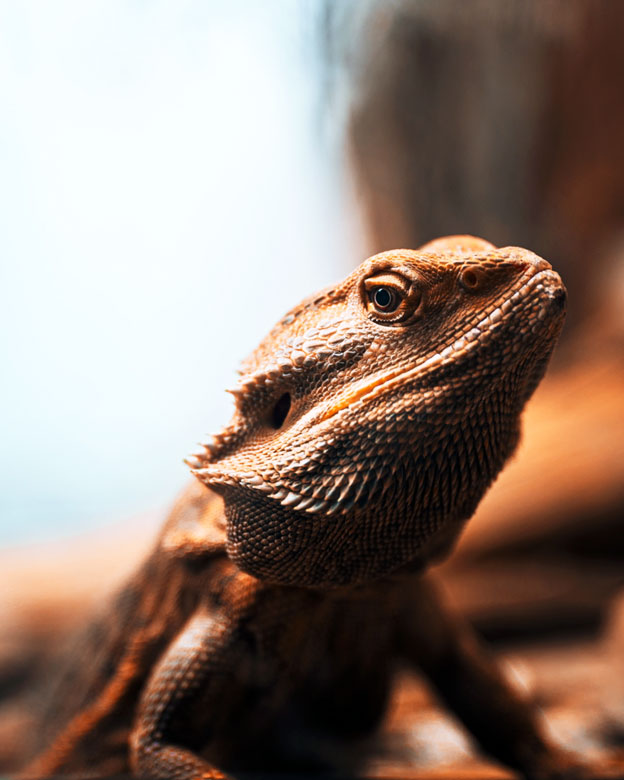
Diet For Baby Bearded Dragons
Baby bearded dragons have different dietary needs than their adult counterparts. It is essential to provide young reptiles with a balanced and nutritious diet in order to ensure healthy growth and development. Some of the foods that are suitable for baby bearded dragons include:
Protein-rich Insects: Young bearded dragons require plenty of protein for optimal growth. Their diet should consist mostly of small live insects such as crickets, mealworms, and waxworms.
Leafy Greens: Baby bearded dragons can also benefit from eating some leafy greens like kale, collard greens, and dandelion greens. These vegetables provide essential vitamins and minerals for their overall health.
Fruits: While fruits are not a primary part of a baby bearded dragon's diet, they can be offered as an occasional treat in small amounts. Some suitable fruits include strawberries, raspberries, and blueberries.
Conclusion
In conclusion, bearded dragons can consume tomatoes as part of their diet. However, they should be offered as an occasional treat rather than a staple food. Tomatoes are high in water content and contain some essential nutrients such as vitamin C and vitamin A. However, they also have a higher ratio of phosphorus to calcium, which can contribute to calcium deficiency in bearded dragons.
It is important for bearded dragon owners to ensure a balanced diet for their pets, including a variety of leafy greens, vegetables, and insects. Leafy greens like kale, collard greens, and dandelion greens are excellent sources of calcium and other essential nutrients. Vegetables like bell peppers, carrots, and squash can provide additional variety and nutrients.
Feeding commercial diets formulated specifically for bearded dragons can also be a convenient option. These diets help ensure a well-rounded mix of nutrients. Additionally, it is crucial to remove any seeds, pits, or potentially toxic parts of the tomatoes before offering them to your bearded dragon.
Remember, responsible feeding practices and a varied diet are key to keeping your bearded dragon healthy and thriving. Regularly consult with a reptile veterinarian for guidance on the appropriate diet and feeding schedule for your bearded dragon.
Frequently Asked Questions
Are all tomatoes safe for bearded dragons to eat?
While tomatoes can be enjoyed as an occasional treat, not all types of tomatoes are safe for bearded dragons. It is important to note that the leaves and stems of the tomato plant, as well as unripe tomatoes, can be toxic to bearded dragons. Therefore, it is best to only offer ripe, red tomatoes to your beloved pet.
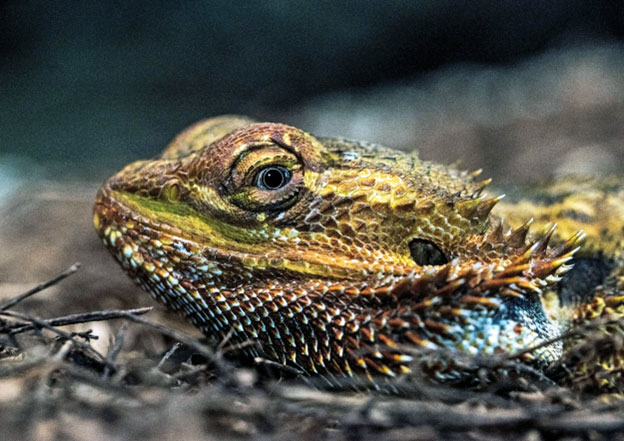
Can tomato seeds or skins be harmful to bearded dragons?
Bearded dragons cannot digest tomato seeds and skins easily. These parts can cause digestive issues and potentially lead to blockages. To avoid any health risks, it is essential to remove the seeds and skins before feeding tomatoes to your bearded dragon.
Are raw tomatoes okay for bearded dragons?
Yes, raw, regular tomatoes are generally safe for bearded dragons to consume. However, it is important to make sure that the tomato is ripe and red before offering it to your reptile pet. Additionally, always remove any seeds, pits, or skins before feeding them to your bearded dragon. The juices from a tomato can also be an excellent source of hydration for your reptile friend.
How often can bearded dragons eat tomatoes?
Tomatoes should only be given as an occasional treat in small quantities. A great guideline is to offer tomatoes no more than once or twice a month. Bearded dragons have specific dietary requirements, and a varied diet is crucial to provide them with all the necessary nutrients.
What other fruits and vegetables can bearded dragons enjoy?
Bearded dragons can enjoy a variety of fruits and vegetables to supplement their diet. Leafy greens like kale, collard greens, and dandelion greens remain staples due to their high calcium content. Other safe options include bell peppers, carrots, squash, and sweet potatoes. However, it is vital to research and ensure that the fruits and vegetables you offer to your bearded dragon are safe for them to consume.
What signs indicate that tomatoes are not suitable for my bearded dragon?
If your bearded dragon experiences any adverse reactions after consuming tomatoes, it might be an indication that they are not suitable for them. Signs of an adverse reaction can include decreased appetite, diarrhea, vomiting, or changes in behavior. In such cases, it is best to avoid feeding tomatoes to your bearded dragon and consult a veterinarian if needed.
Overall, you can let your bearded dragon eat tomatoes in moderation as a part of a varied and balanced diet. However, it is crucial to ensure that only ripe tomatoes are fed, and any seeds or skins are removed to prevent any potential health issues.
To decide the best diet plan for your beloved pet, seek the advice of a reptile veterinarian for guidance on the appropriate diet and feeding schedule for your bearded dragon. Generally speaking, a mix of dark leafy greens, vegetables, and occasional treats like tomatoes will keep your beardie happy and healthy.

